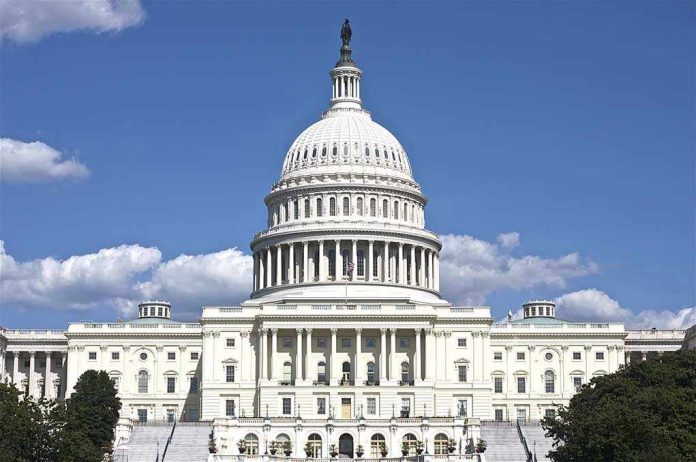
Trump’s sudden demand to unseal the Epstein files is more than a political about-face—it’s a grenade tossed into the heart of Washington’s secrets, and everyone with a stake in the truth or the cover-up is scrambling for cover.
Quick Take
- Trump reversed his public stance, urging House Republicans to vote for releasing Epstein files.
- The shift follows months of GOP resistance and growing bipartisan and survivor advocacy pressure.
- The House vote is imminent; Senate approval would still be needed for full disclosure.
- The release could reshape political, legal, and social landscapes for years to come.
Trump’s Reversal Sends Shockwaves Through Congress
Donald Trump’s calls for transparency on the Epstein files came after months of stonewalling, instantly transforming a simmering debate into a political firestorm. House Republicans, who had previously dismissed the release effort as a Democratic ploy, now face immediate pressure from both their base and angry survivors demanding answers. The president’s words—“There’s nothing to hide, it’s time to move on”—landed with the force of a challenge, not just to Democrats but to his own loyalists, many of whom now scramble to justify their sudden change in tone. The upcoming House vote is no longer a procedural blip—it’s a test of allegiance in a party where Trump’s endorsement still makes or breaks careers.
Survivors and advocacy groups, long frustrated by political maneuvering, seized on Trump’s reversal as a rare window of bipartisan possibility. Their public service announcements, timed to coincide with Trump’s statement, amplified the emotional stakes. The House chamber, usually a stage for predictable partisanship, now buzzes with uncertainty. Will this be the moment when powerful names are finally revealed, or will the measure stall, suffocated by backroom deals in the Senate?
Bipartisan Momentum Meets Reluctant Gatekeepers
Pressure for transparency has been building for months. Survivors, anti-trafficking groups like World Without Exploitation, and a restless public have kept the Epstein case alive in the national consciousness. As bipartisan support in the House grew, Republicans found their initial resistance harder to defend. Media coverage, often skeptical of both parties’ motives, has highlighted the rare alignment: politicians, survivors, and the public all demanding daylight. Yet, even with the House poised to act, the Senate remains the ultimate gatekeeper. Behind closed doors, senators weigh not only the legal ramifications but the political fallout—who stands to gain, who might be exposed, and how the release could redefine long-held narratives about power and accountability in America.
The ripple effects extend beyond the Capitol. Potential legal actions loom for those named in the files, and political strategists on both sides prepare for revelations that could tilt elections or end careers. For survivors, the promise of transparency offers hope, but also anxiety—will justice finally be served, or will powerful interests find new ways to obscure the truth?
Institutional Trust and the Limits of Transparency
The Epstein files saga is more than a test of political will; it’s a referendum on the nation’s trust in its institutions. Legal scholars warn that while transparency is essential, releasing unredacted files could compromise due process for those named but uncharged. Advocacy groups, by contrast, argue that secrecy has protected abusers and enabled systemic failure for too long. The debate plays out not only in congressional hearings but in newsrooms, courtrooms, and living rooms across the country. For every American who believes in the cleansing power of sunlight, another worries about collateral damage—innocent bystanders, weaponized information, and the erosion of privacy rights in the digital age.
Trump’s reversal may be rooted in political calculation, but the consequences ripple far beyond one man’s legacy. If the House and Senate move to unseal the files, the country will confront uncomfortable truths about who wields power and who is held accountable. If the effort stalls, cynicism about government secrecy will deepen, reinforcing the belief that justice is a privilege reserved for the well-connected. Either way, the next chapter in the Epstein files debate promises to be as unpredictable and consequential as the story that got us here.
Sources:
Trump takes sharp U-turn on Epstein files



